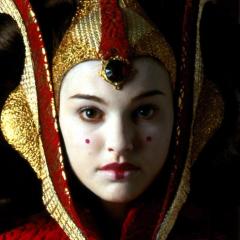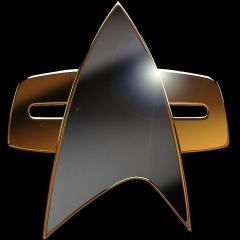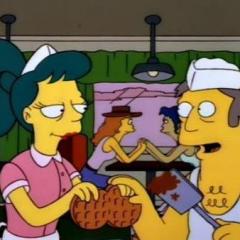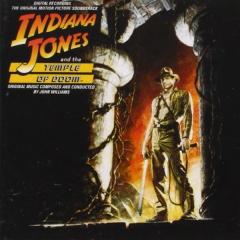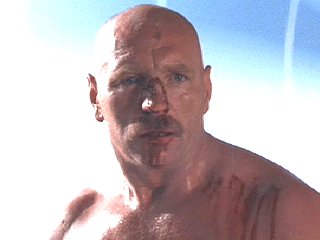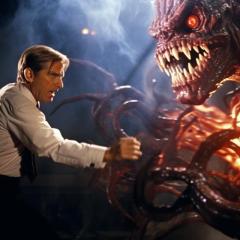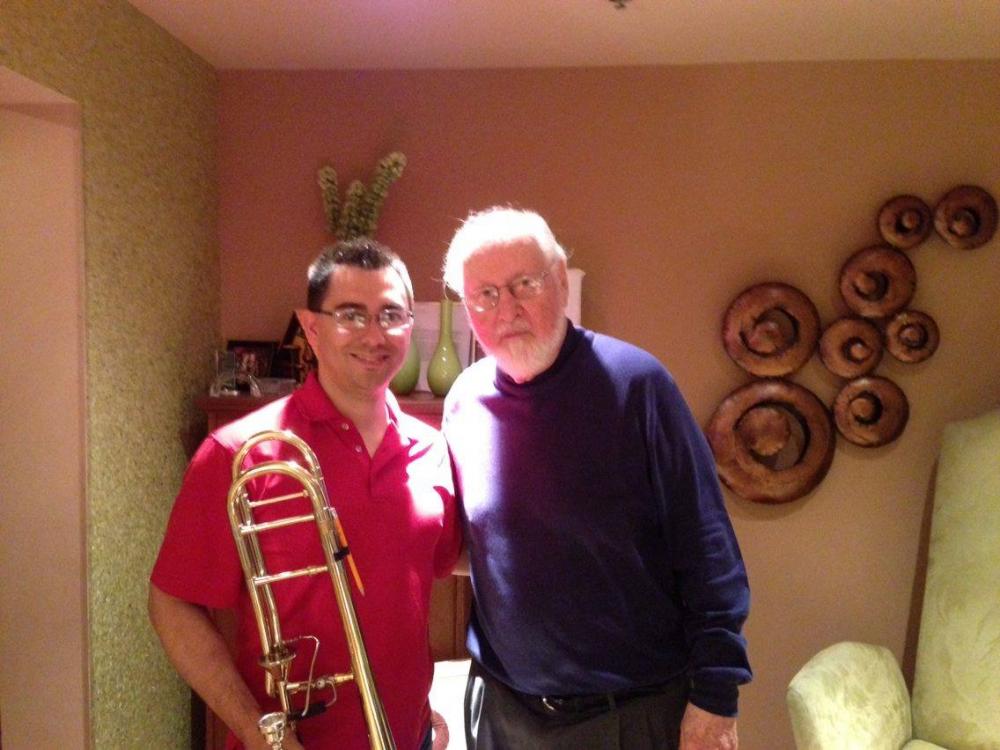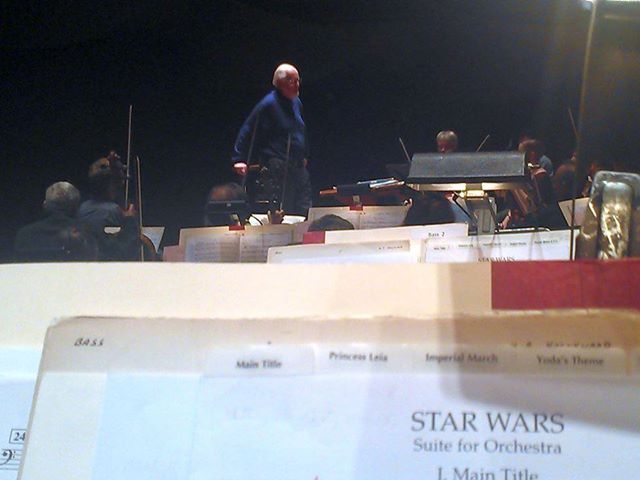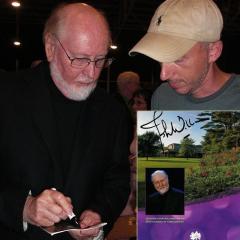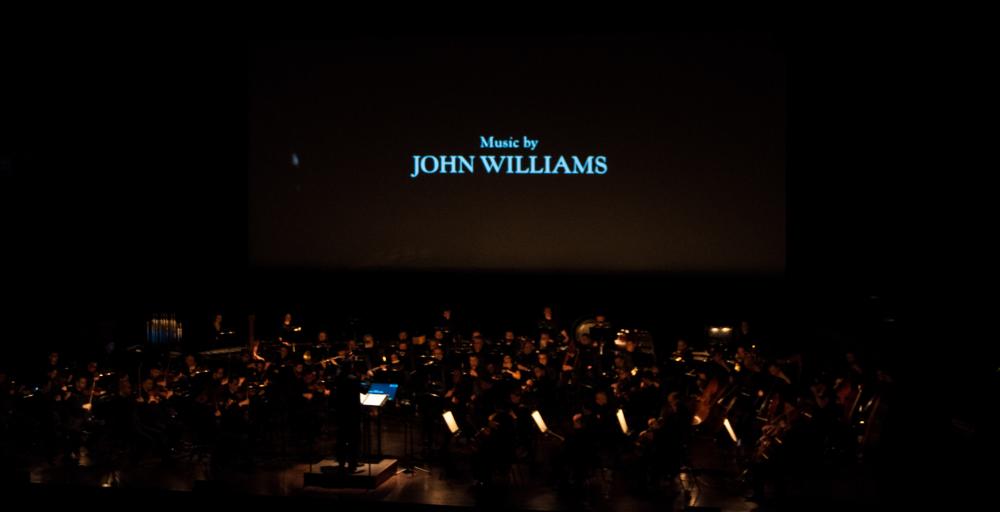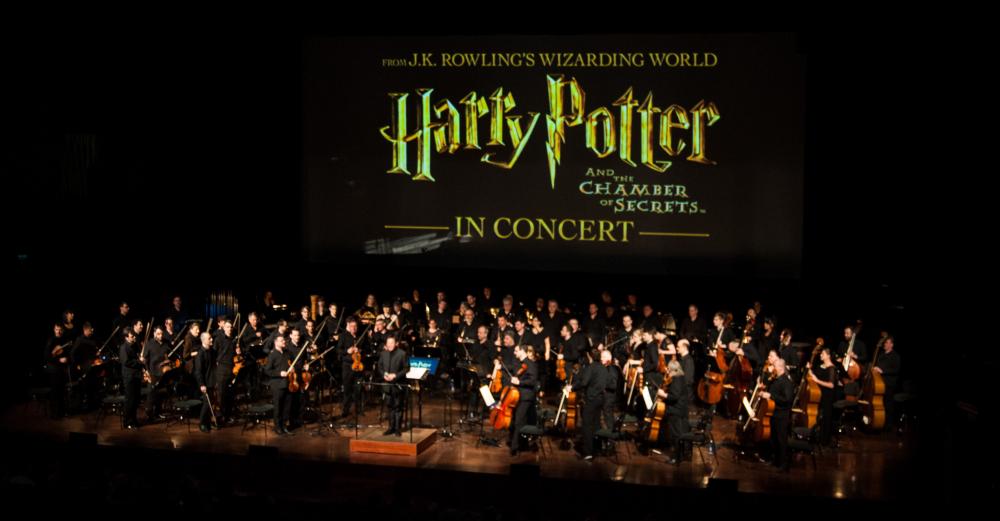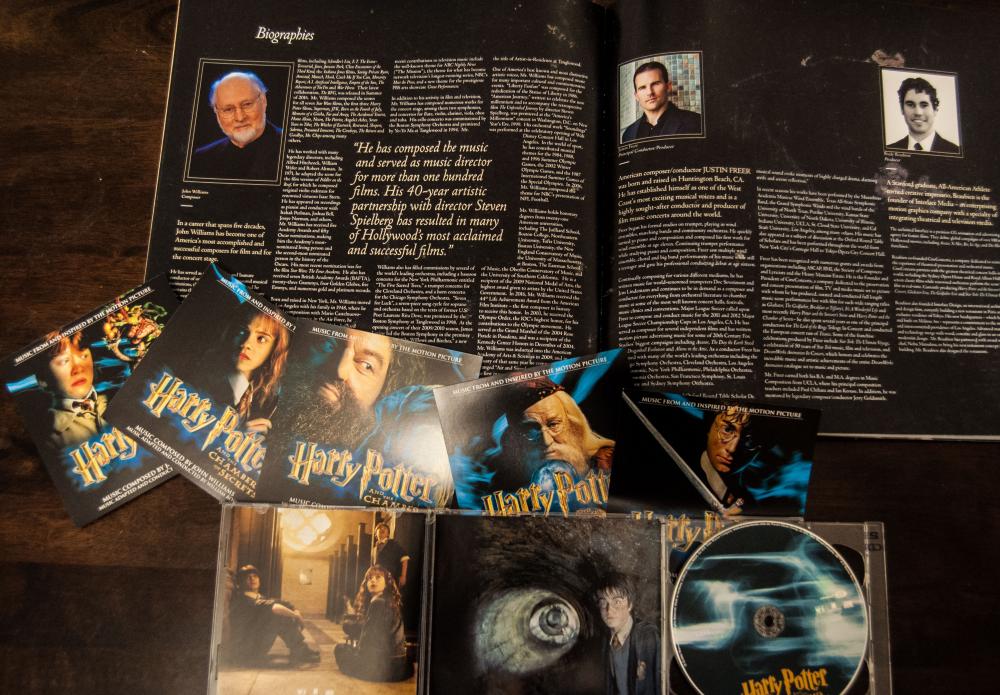Leaderboard
Popular Content
Showing content with the highest reputation on 19/03/18 in all areas
-
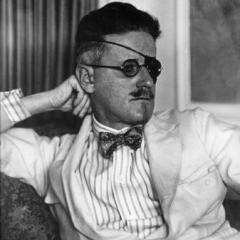
John Williams sweeps Filmtracks 2017 awards winning all 3 categories!
Marcus and 8 others reacted to TheUlyssesian for a topic
http://www.filmtracks.com/awards/17.html Top Film Score •Beauty and the Beast (Alan Menken) 2nd Place •Bitter Harvest (Benjamin Wallfisch) 4the Place •Murder on the Orient Express (Patrick Doyle) 5th Place •Star Wars: The Last Jedi (John Williams) WINNER •Viceroy's House (A.R. Rahman) 3rd Place Williams also shockingly got 7th Place not for The Post but for Dear Basketball! Top Composer •Patrick Doyle •Michael Giacchino •George Kallis •Benjamin Wallfisch •John Williams WINNER Top Film Cue •Albion: The Enchanted Stallion (George Kallis) "A Wonderful Place of Nature" •Beauty and the Beast (Alan Menken) "Wolves Attack Belle" •Bitter Harvest (Benjamin Wallfisch) "Elegy For Ukraine" •The Boss Baby (Conrad Pope) "Love" •Captain Underpants: The First Epic Movie (Theodore Shapiro) "Saving the Day" •Coco (Michael Giacchino) "Crossing the Marigold Bridge" •A Cure For Wellness (Benjamin Wallfisch) "Actually I'm Feeling Much Better" •Dear Basketball (John Williams) "Dear Basketball" WINNER •The Emoji Movie (Patrick Doyle) "Gene Saves Textopolis" •Honnouji Hotel (Naoki Sato) "Main Theme" •The Last Warrior (George Kallis) "The Battle for the Crystal" •LBJ (Marc Shaiman) "Writing the Speech" •The Mummy (Brian Tyler) "The Mummy End Title Suite" •Murder on the Orient Express (Patrick Doyle) "Orient Express Suite" •The Post (John Williams) "The Presses Roll" •Star Wars: The Last Jedi (John Williams) "The Spark" •Thor: Ragnarok (Mark Mothersbaugh) "Ragnarok Suite" •Tokyo Ghoul (Don Davis) "The Kaneki Metamorphosis" •Valerian and the City of a Thousand Planets (A. Desplat) "Medusa" •Viceroy's House (A.R. Rahman) "Swearing In" Thank god Desplat's preposterously overrated The Shape Of Water is not included. JW continues to excel over other composers by leaps and bounds. I personally would nominate him for The Post too - a wondrous little score that works up a storm within the film it was written for.9 points -
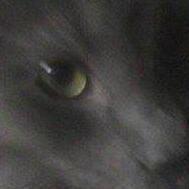
John Williams sweeps Filmtracks 2017 awards winning all 3 categories!
Darth Porkins and 5 others reacted to Bryant Burnette for a topic
No.6 points -
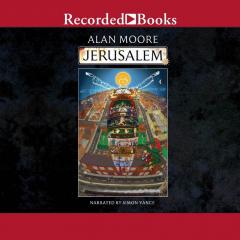
John Williams sweeps Filmtracks 2017 awards winning all 3 categories!
Arpy and 4 others reacted to #SnowyVernalSpringsEternal for a topic
People complaining about someone awarding Williams with something? Only on JWfan!5 points -
I like the OST version of the End Credits over the film version even though the film version features longer unedited pieces of music. I just don't care for including so much music from The Battle of Crait. The OST version is more of a quick medley than a suite but it works to represent the major themes and moments from the film without so many minutes of pure action music.5 points
-
John Williams sweeps Filmtracks 2017 awards winning all 3 categories!
Once and 3 others reacted to Joni Wiljami for a topic
It was an amazing year for this wonderful composer, well deserved!! Sadly this is the only place in this world that cannot see that.4 points -

Solo: A Star Wars Story (Ron Howard 2018)
DarthDementous and 2 others reacted to The Illustrious Jerry for a topic
3 points -

Star Wars Prequel VS. Sequel scores
DarthDementous and 2 others reacted to John for a topic
The only love theme Williams composed for ESB is the droids motif.3 points -
C&C is only an invalid listening experience to deaf people.3 points
-
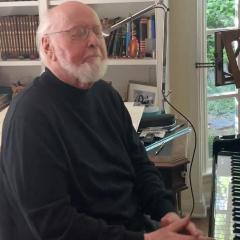
John Williams sweeps Filmtracks 2017 awards winning all 3 categories!
Jurassic Shark and one other reacted to Alex for a topic
I live for Clemmensen's disdain for Zimmer. Probably my favourite reviewer out there to be honest. He did award The Post 3 stars though which was surprising.2 points -
Wow! Behind the scenes of Interstellar's score! The guys back there are waiting for the "maestro" to sleep for them to make the magic happen!2 points
-

John Williams sweeps Filmtracks 2017 awards winning all 3 categories!
Arpy and one other reacted to TheUlyssesian for a topic
Not true. He was quite complimentary of the recent Thor Ragnarok and has provided high scores to other electronic scores like Tron Legacy and many Goldsmith scores and has praised electronic elements in Elfman scores.2 points -
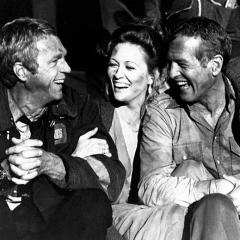
No Time To Die (James Bond #25)
Cerebral Cortex and one other reacted to MikeH for a topic
Actually Barry was initially offered Tomorrow Never Dies: https://perspectiveforum.net/2016/05/22/the-beyondness-of-things-my-bittersweet-relationship-with-barry-john-barry/ One of my personal goals was to reunite John Barry into the James Bond series. There was a lot of old history between Barry and the Bond folks and I felt I might be helpful in bringing a fresh approach into it without being burdened by all the prior baggage.After a lot of back and forth they ended up offering him TOMORROW NEVER DIES. I could not have been more thrilled. However, things got really wonky during the negotiations with neither side agreeing over his fee with the difference being relatively minor. Both sides dug in their heels. MGM said they were moving on without him. I felt like I was the worst agent in the history of show biz. I was fumbling having John Barry score another James Bond film. This was unacceptable. As John’s agent I couldn’t let that happen. As a Bond music fan, I would kill me if I didn’t find a way to pull this off. On Christmas Eve, with holiday music playing in the background (including Barry’s “Do You Know How Christmas Trees are Grown”) I decided something had to be done to fix it all and give it a perfect holiday ending. So, I left word with the producer saying how important it was to me, as a fan, to have John score the film. I realized that the amount separating John and MGM was exactly the same amount as my commission would have been on this film. In the spirit of Christmas and of wanting this to happen so badly, I offered to give my commission over to the studio so they could then use it to make John the offer he wanted. The only condition was that they could never tell him. I needed him to think the extra money had come from them.After leaving that message I sent to bed with dreams of The Great Barry/Bond Reunion dancing in my head. The day after Christmas I got the call from the studio’s music department.“Are you trying to bribe us with kickbacks?” I was stunned. I quickly explained my sincere intentions to do right by everyone. She said they refused to pay John any more under any conditions and they were moving on. I had clearly stepped into a vast quagmire of issues and people and history and personalities that predated me by decades. I had failed. Though he acted dismissive and a bit resigned to these setbacks, I couldn’t help but think how deeply they must have stung.2 points -

John Williams sweeps Filmtracks 2017 awards winning all 3 categories!
bollemanneke and one other reacted to TheUlyssesian for a topic
What is so terrible about traditional orchestral scores. I prefer them too honestly over droning soundscapes.2 points -
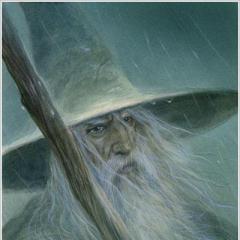
The Official Intrada Thread
Jurassic Shark and one other reacted to Incanus for a topic
I have never had any issues when ordering from Intrada. They usually mark their packages so that they don't get held up in the customs (value is marked as 10 or 15 $) nor are have I ever paid additional fees for their packages. I actually just received the latest package last Friday. The postage fees on the other hand can be very steep. For Intrada it is 14 $ for the first CD and then it jumps to flat 20 $ for discs 2-8.2 points -
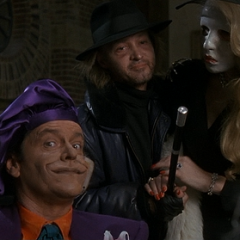
What Is The Last Score You Listened To? (older scores)
Bilbo and one other reacted to Gruesome Son of a Bitch for a topic
Titanic It's better than everything.2 points -
I've made an intended C&C of AOTC and it definitely has changed my mind. Yes it's not the strongest Prequel score but it's pretty damn good.2 points
-
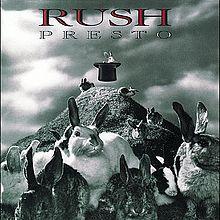
What are your Top 5 all-time favourite songs?
SteveMc and one other reacted to Naïve Old Fart for a topic
Yep, that one! Angst-fuelled rant against isolationist Thatcherism, or paean to four-wheeled, motorised transport? Who cares, when it sounds like this! Rock that Prophet 5!2 points -

John Williams sweeps Filmtracks 2017 awards winning all 3 categories!
Not Mr. Big reacted to Dixon Hill for a topic
Not what I said, is it? Perhaps don't project your insecurities as a shit musician onto the discussion....1 point -
John Williams sweeps Filmtracks 2017 awards winning all 3 categories!
Jurassic Shark reacted to Joni Wiljami for a topic
He likes good music. And yes, brass is the most important!!1 point -
John Williams sweeps Filmtracks 2017 awards winning all 3 categories!
bollemanneke reacted to Lewya for a topic
It is true. Tron: Legacy was 7 years ago, not really recent - I couldn't remember it and it includes some orchestral backing too. I was talking fully electronic scores, or unconventional orchestral scores, not just an electronic element. Recently meaning from the last 3 to 5 years.1 point -
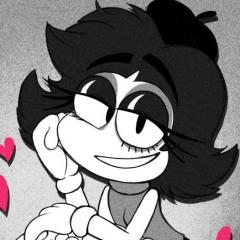
Solo: A Star Wars Story (Ron Howard 2018)
DarthDementous reacted to Kasey Kockroach for a topic
"Giacchino! Giacchino! Can't write melody! Can't make wet recording! Nyah, nyah, nyah...!"1 point -

Solo: A Star Wars Story (Ron Howard 2018)
Kasey Kockroach reacted to The Illustrious Jerry for a topic
1 point -
That's a good question... I have no idea when in the process the end credits are assembled but it seems a one year notice would be enough time to avoid last-minute credit changes. The film was in the can by August or September. I imagine all Williams needs to know about the credits is the length and, in this case, when the Fisher credit appears.1 point
-

John Williams sweeps Filmtracks 2017 awards winning all 3 categories!
bollemanneke reacted to TheUlyssesian for a topic
Hardly that when you see Williams hasn't won the top composer award since 2005 I believe. You'd argue Williams might have more wins if CC were a fanboy.1 point -
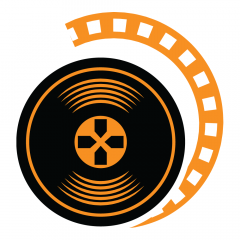
John Williams sweeps Filmtracks 2017 awards winning all 3 categories!
Jurassic Shark reacted to Caliburn for a topic
My 2017 list was pretty different https://soundtrackworld.com/2018/01/soundtrack-world-one-year-old/ That is why I love film music, everyone can find something they enjoy,1 point -
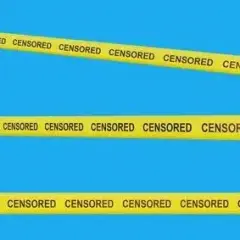
John Williams sweeps Filmtracks 2017 awards winning all 3 categories!
Pieter Boelen reacted to Jurassic Shark for a topic
I enjoyed both The Post and The Last Jedi as films and also the scores, but the latter film had a lot of questionable logic and story choices. Looking forward to Spielberg's sequel to the former, titled The Stamp.1 point -
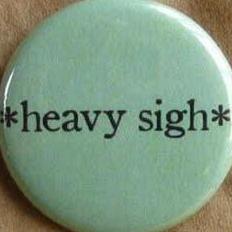
No Time To Die (James Bond #25)
Naïve Old Fart reacted to Sweeping Strings for a topic
TND's Wiki page says Babs Broccoli chose Arnold on Barry's recommendation.1 point -

John Williams sweeps Filmtracks 2017 awards winning all 3 categories!
Taikomochi reacted to Incanus for a topic
Not that exciting though. Apart from 3 pieces that stand out in the film the rest is quite middle of the road JW. Nice to see someone making a conservative list for once.1 point -
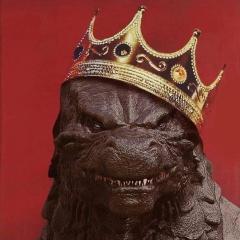
Your current audio equipment..
Naïve Old Fart reacted to Unlucky Bastard for a topic
Okay my preamp does something really cool. When I have it set to a 2-channel input, like when I'm playing a regular CD, the preamp still sends a signal to my subwoofer, offering a 2.1 experience. That's amazing! I had to fiddle with the crossover, but it made the musical experience all the more rewarding. The last 24 hours have been really exciting!1 point -

John Williams sweeps Filmtracks 2017 awards winning all 3 categories!
bollemanneke reacted to Unlucky Bastard for a topic
If The Post is "a million times better" than TLJ, it ought to be damn exciting.1 point -
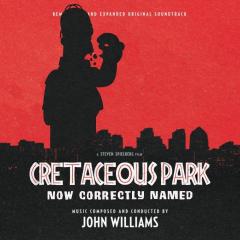
John Williams sweeps Filmtracks 2017 awards winning all 3 categories!
bollemanneke reacted to rough cut for a topic
Hopefully this will help to push for a release of 'Basketball'. Edit: Oh, the website Filmtracks. Ok, so that won’t probably help much. Although, still nice.1 point -
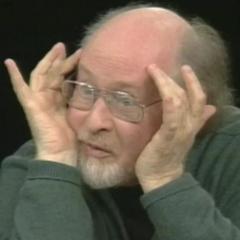
John Williams sweeps Filmtracks 2017 awards winning all 3 categories!
Dixon Hill reacted to Thor for a topic
Nothing 'terrible' about it. I like several of the titles on the list. But it could do with a bit more versatility and non-Hollywood material.1 point -
1 point
-
Please meet Baltimore Symphony Orchestra bass trombonist and lifelong John Williams fan, Randy Campora. I had the honor of performing next to Randy a week after John Williams conducted this orchestra in an all Williams concert. I enjoyed hearing Randy joyfully gush about Williams' amazing music and talent but also what a joy it was to perform under him. I wanted to interview Randy and ask him more about his musical experiences, his experiences working in a major symphony orchestra, and the impact of John Williams’ music throughout his life. KE: How and when did you first come to love your instrument and what was it about the trombone that you first connected with? RC: In third grade, we were told that the band teacher was going to ask us what instrument we wanted to play, and if we're interested we should be thinking about that. I saw on TV that the trombones were always in the front line, and when they demonstrated the trombone at school I wondered how they got that metal slide to go down their throat without injury - I had to find out how it worked! Also, as a toddler, I wandered off at the zoo one day and my mom found me hiding in the corner of the gazebo listening to a band rehearse, with my eyes glazed over in amazement. KE: What qualities do you look for when evaluating an instrument? For example, do you look for a big bold tone, something that’s solid, slots easily, gives you flexibility in tone color, free blowing, etc. RC: I look for an openness of tone that can also be controlled in all registers and dynamics, a good relationship between inner focus and outer radiance (bloom), ability to project with warmth and color, clarity of articulation, ability to meld into the other players but also step forward towards the audience when needed. It also must ergonomically fit my body comfortably. I use an Edwards dependent axial valve section, a 1575cf bell (22 gauge yellow brass, soldered rim, heat treated, cf treated, 10” diameter), a yellow brass single radius tuning slide, a 502-V single bore slide (rose tubes, yellow crook, #2 brass pipe), and a Griego .5 NY mouthpiece. I also have the rose brass version of the bell, a 1574cf, which I can use for earlier composers—it gives a more classic German profile. I recently switched to the single bore slide from the dual bore after many years. The new 502 design seems to give me the best qualities of both, but with easier control, more color and easier projection. The dual bore skews more towards the contrabass profile, which is great for many things, but not good for all things. In the past I used Bachs for many years, with Schilke 60 mouthpieces of various rim sizes, backbores, and shanks; Minick L or OL pipes from Los Angeles; Thayer valves, mostly dependent setups, but for a while an in-line (in-line Thayers don’t fit my neck/jaw very well and mess up my ability to get the mouthpiece in the right spot on my face). KE: Who was most influential in your performance technique and why? RC: The players and teachers I first heard on bass trombone, in this order: LA/NYC TV and recording artists, on Lawrence welk and on my dad’s stereo in the car; George Roberts; David Rollins, my first bass trombone teacher; Thad Jones Mel Lewis Band; Stan Kenton Band; Florida State students Brian Brink and Jeff Thomas; Jeff Reynolds on his LP; Thomas Streeter on his LP; William F. Cramer, my professor at Florida State; Charlie Vernon; Douglas Yeo (my teacher at Peabody); John Engelkes; My colleagues David Fedderly, Eric Carlson, James Olin and Chris Dudley. KE: How did you come to decide to be a professional musician? RC: In middle school, I decided it would be smart to figure out what I was going to do with my professional life so I could get a jump on things and not waste time and effort. I went to the library section on professions. I checked out all the books on things that seemed interesting to me. There was one book about being a professional musician. I decided this was the best fit. From then on I kept an open mind but had this as my goal. a. What has the experience of being a professional musician been like? Wow, I hardly know where to begin! More multi-layered than I thought it would be, more people centered than I expected—more influenced by the human organizational behavior aspect than I imagined. I have no complaints overall, in a big picture sort of way, though there are things I would change if I had Harry Potter’s wand. b. What did you wish you knew then that you know now? I would be more patient and understanding with certain colleagues that I thought at the time were not contributing as much as I thought they should. I would be less critical and more supportive, even when their decisions didn’t make sense to me. KE: What would you say was your first big break? RC: There were “two” first big breaks: when I was allowed to join the FSU top Jazz Ensemble at the age of 16, and when Douglas Yeo felt I was ready to sub for him in the BSO on a program of Beethoven’s Missa Solemnis with David Zinman. KE: What was the audition experience like to land your current job with the Baltimore Symphony Orchestra? RC: I was super nervous leading up to it—it was my first audition—so much so that I almost decided to not do it because I didn’t want to start auditioning before I was ready to withstand the pressure. But once on stage, I was fine and I felt I could just do my thing. The feeling of winning and being offered the job is something you never forget. I felt like the whole city was mine for a day. KE: What unsung work do you consider one as a favorite to perform but might not be as popular by audiences? RC: Pieces by Nielsen (Sinfonia Espansiva), Vaughn Williams (4th Symphony), Sibelius’s tone poems besides Finlandia, Janacek, Martinu’s ballets, Dvorak’s later tone poems, Scriabin’s symphonies. There are also pieces that audiences like but managers/conductors don’t program, like Swan Lake or Sleeping Beauty, Borodin’s Second. KE: I was very intrigued by a video posted by the Swedish trombone virtuoso, conductor, and composer Christian Lindberg where he basically did a video blog about his very unique daily routine of maintaining his performance proficiency, exercise, health, stamina, score study, and composition. What is your daily practice/performance routine? RC: I get to each rehearsal and concert about 75 minutes before so I can always do my warm up but also a session of fundamentals, including breathing and buzzing. This is in addition to the practicing I do at home. This maintenance I have found to be essential in not just keeping things in form, but self-correcting when problems arise, and moving certain playing aspects forward over time. It also keeps my mind engaged in progress and helps me as a teacher. You have to be creative in finding a space to practice at work before concerts: I use the HVAC/Sump Pump/Laundry Room, so it’s just me, the occasional custodial staff member, and the cockroaches in a hot, noisy, dusty environment, but it works. At home, I have my trombone cave, and I often listen to singers, organists, pianists, jazz or orchestral pieces while I am practicing or doing fundamentals—it’s weird but it works for me to help me absorb the greatness of others. For exercise, I used to swim, but now I walk and do weight machines at the gym. Douglas Yeo taught me the importance of score study, so I began my collection of scores early on, and I use Peabody’s music library when needed. I spend just as much, if not more, time studying the score in preparation for a program than I do on the horn. I bring the score to rehearsals for all of us to use—we don’t have to ask the conductor silly questions, we can correct our own parts, and we look erudite back there with a score instead of our cell phones! I would emphasize this heavily to younger players: the score gives you the same information the conductor has, and it evens the playing field. This is probably the most underappreciated part of orchestral playing. KE: What is a work in the common literature that you find fiendishly difficult/unnerving and what it is about that work that makes it this way? RC: The hardest piece technically I think might be Vaughn Williams’ 4th Symphony, a lot of fast passages. Elgar’s Falstaff is tough—very jagged. John Adams’ Harmonielehre and Short Ride are super challenging but are pure modern masterpieces so they are worth the trouble. When I was younger and playing Star Wars for the first time I had to really work on my multiple tonguing. The most challenging composer for me of all is Richard Strauss—his writing for bass trombone is so demanding sonically, technically, dynamically and musically. And Brahms looks so simple on the page, but it demands total perfection so you feel like a failure if you goof up an attack, get the wrong sound on a note or a chord is not in tune. There are many modern composers who simply don’t write well for brass, so in those cases, you just do your best and don’t lose sleep over it. KE: As a professional performer, there are some works that get played frequently. I’m curious how you keep the music fresh and not get bored? RC: If the conductor is good and has a point of view, boredom is not an issue. This is key. It is hard to force your own point of view on a piece if the conductor lacks one because you are one of 90 players and you can only exert so much personality and then it’s a problem. I hate when critics refer to pieces like Pictures or Scheherazade as “war horses.” Excuse me, they are masterpieces and that is why we like playing them and people like hearing them. The key is inspired partnering with conductor and orchestra. If that does not happen, you have to study your score and look for little things you haven’t noticed before and try new things and enjoy yourself. It’s good to remember that the audience is going to enjoy a piece even if the conductor is not good. KE: Are there pieces you’d like to play but haven’t had a chance to yet? RC: Strauss operas Elektra, Salome, Die Frau, and his Sinfonia Domestica; Janacek’s Sinfonietta; Wozzeck and Lulu; Sibelius’ tone poems; Nielsen’s early symphonies and poems; Gurrelieder. My least favorite composer is probably Bernstein, so it’s funny that I have played every note he’s ever written for orchestra, and recorded much of it, and played it on tour . . . KE: When did you first become a fan of John Williams? RC: I was finishing my Freshman year of high school when Star Wars debuted in the theaters. I went to see it with the whole family and loved it, and I enjoyed the music so much. Of course like all band kids you have an ear for anything orchestral even though it may be far in the background of any TV show, movie or radio show. I loved the music for each movie when it came out. But at that time we did not have band arrangements of it, and it would be a while before the Boston Pops would play his music on TV. So I did not encounter it much besides in the movies. When I first got into the BSO, we played it a lot on pops concerts both in the hall and outside during the summer. It was a thrill to finally play it, and try to sound like the soundtracks of the LSO and the LA monsters. But it was hard!! There was a lot of multiple tonguing, high range passages for the bass trombone, and at the time we only had the handwritten parts to use and they were very hard to read (it was easy to fall in a hole in the background rhythms of Star Wars or Superman, for example). With time, of course, the Williams scores, non-Star Wars, just kept on coming and it began to be obvious that we were seeing a timeless genius of our time at work. Such depth and immediate humanity, linked with knowledge of the orchestra. And of course a true melodic gift, which is so rare. KE: How did the music of Star Wars impact you? RC: It just keeps gaining ground in my musical mind over time. For example, I loved the scores to the newer movies and always buy the soundtracks on CD. I recently bought a remastered two CD complete soundtrack of The Empire Strikes Back, and to hear Denis Wick, John Fletcher, Frank Mathison and the LSO brass up close on the mics on that music is so inspiring. It warms my heart that the younger players of today are taking to the music so much. KE: What story can you tell us about your interaction with John Williams? RC: The first time we got to play with him at the BSO was just a few years ago, and it was everything I hoped for. The first thing you notice is just how warm, gracious and generous he is (this was for a pension benefit concert). He took much time signing autographs, taking pictures and talking, and this was just with the players after rehearsals! His big heart comes to you very naturally. Then, musically what I felt was that finally, someone gets all the tempos and transitions right! As a player, you do this music with so many conductors, and not all of them are prepared, so the tempo relationships are off and Williams’ transitions are harder than they look on paper—conductors don’t usually go back and listen to the movie and how things work in context. It was a magical night I will never forget, and the house was packed to the gills. He is coming to conduct us again this June, and my plan is to ask him to sign my trombone bell. It’s my favorite one and I’ll never sell it, and it might wear off, but it will always be there to remind me of one of the all-time best composers for brass. That’s if he is ok with signing it. So we’ll see. KE: What advice do you have for someone wanting to follow in your path? RC: Work hard, make sure you love it, persevere, get better a little every week, be patient, be observant as to what other things interest you in life and pursue them also, be kind to everyone of your colleagues, learn from the best and emulate their artistry and professional behavior, and have faith in your future, pour the foundation correctly. We can contribute beautiful, usable things to this world, things that are valuable to our fellow man, and this can be connected to all good things in our society that ennoble and edify the great human family over time. Special thanks to Baltimore Symphony Orchestra’s bass trombonist, Randy Campora for his time and sharing his story. Photo taken by Randy of first trombonist Joseph Rodriguez with The Maestro during a break. The orchestras view during the rehearsal.1 point
-
In honor of the Easter season, there is a very fine and dramatic new Easter cantata by a composer I hadn't heard before named Franghiz Ali-Zadeh and her Passion cantata premiered in 2017 which I think is excellent. The rest of the recording is very good too but I don't know how to link to her work only and it isn't on youtube. She starts on track 8.1 point
-
Hey, we are the most interesting (ok fun) section of the orchestra! I don't know if the orchestra does a meet and greet but if they do, go say hello to Randy...he's an awesome guy and fantastic player!1 point
-
1. Main Theme/Luke’s Theme 2. The Force Theme/Ben’s Theme 3. The Imperial March/Darth Vader’s Theme 4. The Rebel Fanfare 5. Rey’s Theme 6. Across The Stars/Love Theme 7. Duel Of The Fates 8. Han Solo And The Princess 9. Princess Leia’s Theme 10. Battle Of The Heroes1 point
-

The Official Intrada Thread
Holko reacted to Brundlefly for a topic
Use a European site like music box records or chris soundtrack corner. It's much easier and safer that way and you can order LLL and Intrada and Varese CDs all together.1 point -
The Czech National Symphony Orchestra, conducted by Shih-Hung Young, is currently on tour in Scandinavia this month, performing live to projection concerts of Harry Potter and the Chamber of Secrets. Besides Oslo, where I attended the concert today, their website lists Aalborg, Karlstad, Stockholm, København, and Aarhus as other cities where they will perform. I am not exactly sure of the concert dates and ticket availability for those, however. This was, in fact, my first ever live to projection concert, and so I'll simply write a few brief thoughts on it, which will not be based on any sort of experience, standards or comparisons with these sorts of events, so do take what I say with a grain of salt. I cannot complain about the technique of the orchestra - it was top-notch. They did really well on the complex action sequences, such as the spider chase and the Quidditch scenes, which where powerful and well-synchronized, no doubt a result of the conductor who was meticulously following the score and the guidance screen in front of him, and lead the orchestra without any noticeable issues. He seems to have lots of experience with live to projection conducting, and those skills were evident. I also loved The Flying Car, and was amazed at how much sound the orchestra produced while playing the Voldemort/Chamber Opening motif - it actually drowned everything else that was going on in the film sound-wise, and I was in nothing but complete awe My criticisms would come from the fact that the audience was explicitly encouraged to cheer, applaud and boo for various characters and events in the film. I realized that half of the seats were filled with small children and young teenagers, who were probably the target audience, and so the whole concert became too casual for my tastes. While I have nothing against applauding the orchestra where applause is due, I do have problems with applause while the orchestra is actually playing. Some character appearances and their actions resulted in moments of complete noise, which made listening to the orchestra practically impossible at times. Also, it seems that the orchestra decided not to play through the whole of the end credits, so there was no reprise of the Fawkes' theme, for instance, which was a minor disappointment - I really liked that rendition on the OST and was hoping to hear it separately from the action/dialogue in the film. On the non-musical side of things, there was a lot of merchandise to buy at the venue. Scarfs, pins, robes from all of the four Hogwarts houses, etc. I got the Programme notes, which were printed on such a massively-sized booklet that I initially thought they were selling vinyls . The notes include lots of pictures and quotes from the film, as well as detailed analysis on the score itself and notable pieces. They were also selling the CD album, which is the 5 Collectible covers version. All of it was definitely overpriced, but, I guess, that's what you'd expect when buying from a temporary stall at a concert venue.1 point
-
1 point
-

Star Wars Prequel VS. Sequel scores
Smeltington reacted to artguy360 for a topic
Without ranking specific scores and without IX yet, the prequels are better scores but the sequels are far better films. TPM is a very special score. It has a richness, a complexity, a delicate touch, and a bombastic energy that no Star Wars score has matched since. AOTC is a far lesser score but with a killer new theme. I find TLJ lacking from this particular perspective. TFA is a lot of fun and I love all the new themes and how deftly JW mixes them into the existing SW musical landscape. I think IX will decide how I feel about the sequel trilogy as a whole. ROTS is a score with some really rich passages but the new main theme is event specific and a lot of the music sounds like first pass stuff without the refinement I hear in TPM.1 point -
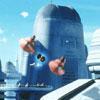
Far and Away being released on Blu-Ray on March 4
Smeltington reacted to Bespin for a topic
I recall the movie Omen... but don't remember Omen II... I wonder if I ever watched it. At my defense, I was 4 when it came out... I remember more the Beach Boy's song than Tom Cruise in this movie! "All the right moves"...ah... the first movie where I really experienced the "pause" fonction of my VHS player. Happy St. Patrick's day!1 point -
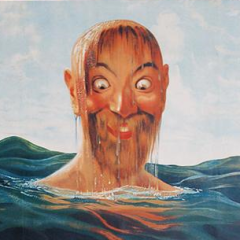
THE LAST JEDI - Deleted scenes feature original score by Williams
DarthDementous reacted to Holko for a topic
5.1 deleted score rips! All done, some may need the previous score tracks overlapping in the beginning or end - That's why I uploaded the complete Fathiers track, too, that one's a bit more complex. Some more sound effects could have been removed or dialed down, but at the cost of more time I don't have at the moment, and probably worse quality and more jumping from left to right or from stereo to quasi-mono. I know Youtube is too lossy for some, so I have the original FLAC files if you PM nicely. The complete Fathiers is glorious (well, will be when it gets a proper release) - we're really going around in circles but Johnny must have found the Fountain of Youth.1 point -
1 point


